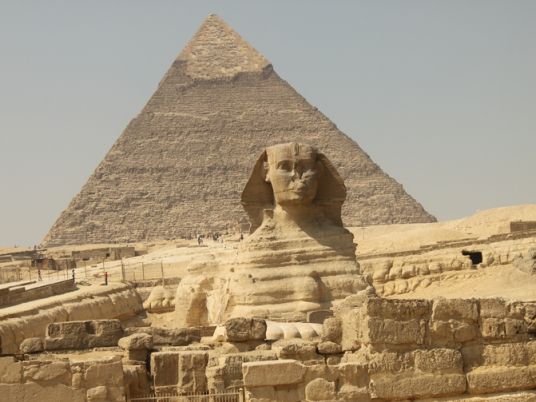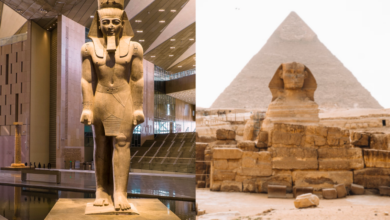
The turquoise waters of East Sinai should be an easy sell. Visitors can enjoy a coral reef teeming with wildlife, pick a sunbathing spot from miles of unspoiled beaches, and dine on the catch of the day — all for a fraction of the price of a European resort.
But for Khaled, the owner of a long-running holiday camp, this paradise is almost lost.
"There are robberies on the road and kidnappings in the area — it's a kind of Wild West," says the hotelier, who asked to have his name changed to avoid reprisals.
After the 2011 revolution, insurgents established a foothold in Sinai, and the rising tide of violence made it an increasingly dangerous destination for visitors — even before Metrojet Flight 9268 crashed down in nearby Sharm el Sheikh.
Bookings are now at roughly half of pre-revolution levels, says Khaled, with the majority coming from local tourists who spend less on shorter stays, while international visitors stay away.
He laments that while business suffers, the government has raised the price of tourist visas and banned safari tours. He is not yet ready to quit, but the question looms ever larger.
"We are looking for good news but there is none," says Khaled. "Maybe Egypt is lost."
An empire in decline
If the picture in Sinai is bleak, it is only now beginning to match the rest of the country.
Egypt is a traditional powerhouse of tourism, boasting a stellar cast of attractions from the Pyramids of Giza to the Valley of the Kings. The industry is integral to the wider economy, with more than 10% of jobs connected to tourism.
Visitor numbers rose steadily in the years to 2010, in which 14.7 million international tourists arrived and pumped $13.6 billion into the economy, according to UN figures. But the revolution set the trends in reverse, and continued aftershocks have choked off recovery.
In 2013, tourism contributed just US$6.7 billion — less than half of the 2010 peak. Tourism Minister Hisham Zaazou lamented "the worst year in modern history," as hotel occupancy plummeted toward zero, and visitors described the eerie sensation of wandering the great monuments in splendid isolation.
The crisis triggered a wide-ranging response from the Ministry of Tourism, which announced a three point-plan aimed at bringing back the crowds; an online marketing blitz, expanding Egypt's international flight network, and working with tour operators to devise more attractive — and cheaper — offers.
The government has embarked on extensive renovation of historic sites, and also sought to corral public sentiment – encouraging citizens to promote their country. The call has been answered in creative ways, from motorcycle missions to lion-fighting strongmen.
While the various campaigns have bought some relief, the scale of Egypt's challenge was brutally illustrated on October 31. On the day the grand-scale promotional initiative #thisisegypt was to launch, Metrojet Flight 9268 came down, and airlines from Russia and the UK — two of Egypt's largest markets — canceled flights.
When #thisisegypt finally surfaced on December 10 it did go viral — as the Internet united in condemnation of the Egyptian government.
Long road back
Prospects appear grave, but Egyptian tourism has recovered from disasters before.
Sixty-two people, including 58 foreign visitors, were killed in the 1997 Luxor massacre. The 2005 bombing of Sharm el Sheikh claimed 88 lives. In both cases, visitor numbers swiftly recovered.
This time may be more difficult, according to David Scowsill, CEO of the World Tourism and Travel Council.
"When these attacks happen, communication from the government in the next days is critical, to say precisely what has happened," says Scowshill. "In the days after the Russian aircraft incident, nobody knew why."
He believes the lack of clarity has fed into decisions by airlines to stay clear for the foreseeable future.
"There are still security questions and until they are resolved the recovery process will not start," says Scowshill "You have to get confidence back, get airlines flying again, and have a major marketing push from private and public sectors to get travelers back."
In contrast to recent attacks on Paris, the CEO believes that Egypt will suffer for the perception that tourists are a target. But even so, he expects the situation to stabilize in "13-15 months" barring another major incident.
In the short term, the most effective strategy is likely to be slashing prices to record lows to persuade wavering tourists, giving the local attractions time to work.
Unprecedented bargains will still seem a gamble to wary visitors, and the golden years may never return. But a great Egyptian industry now depends on rolling the dice.




